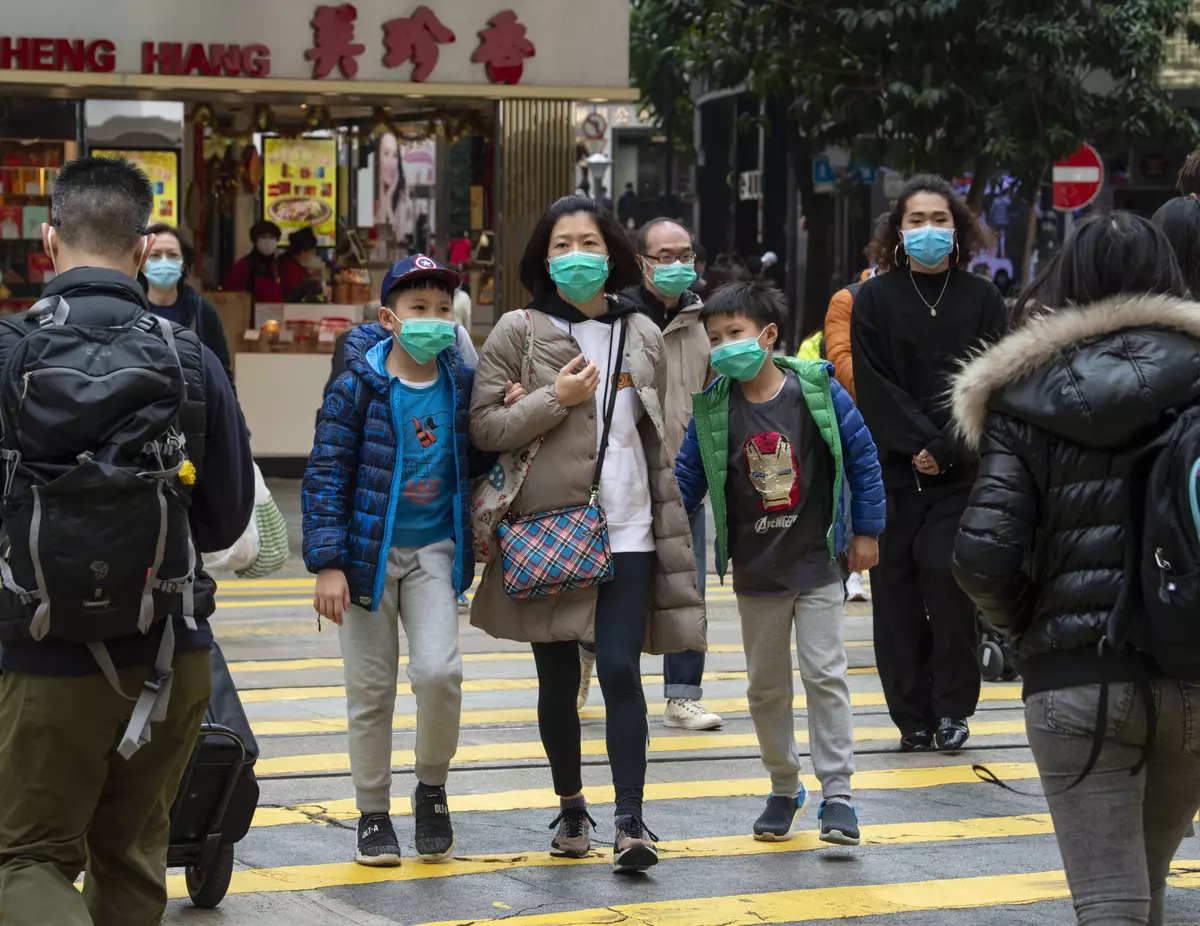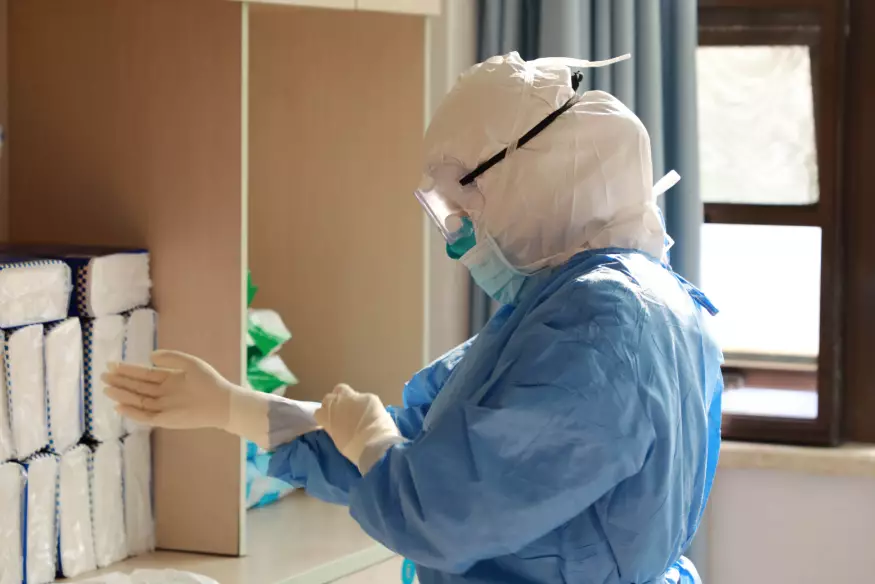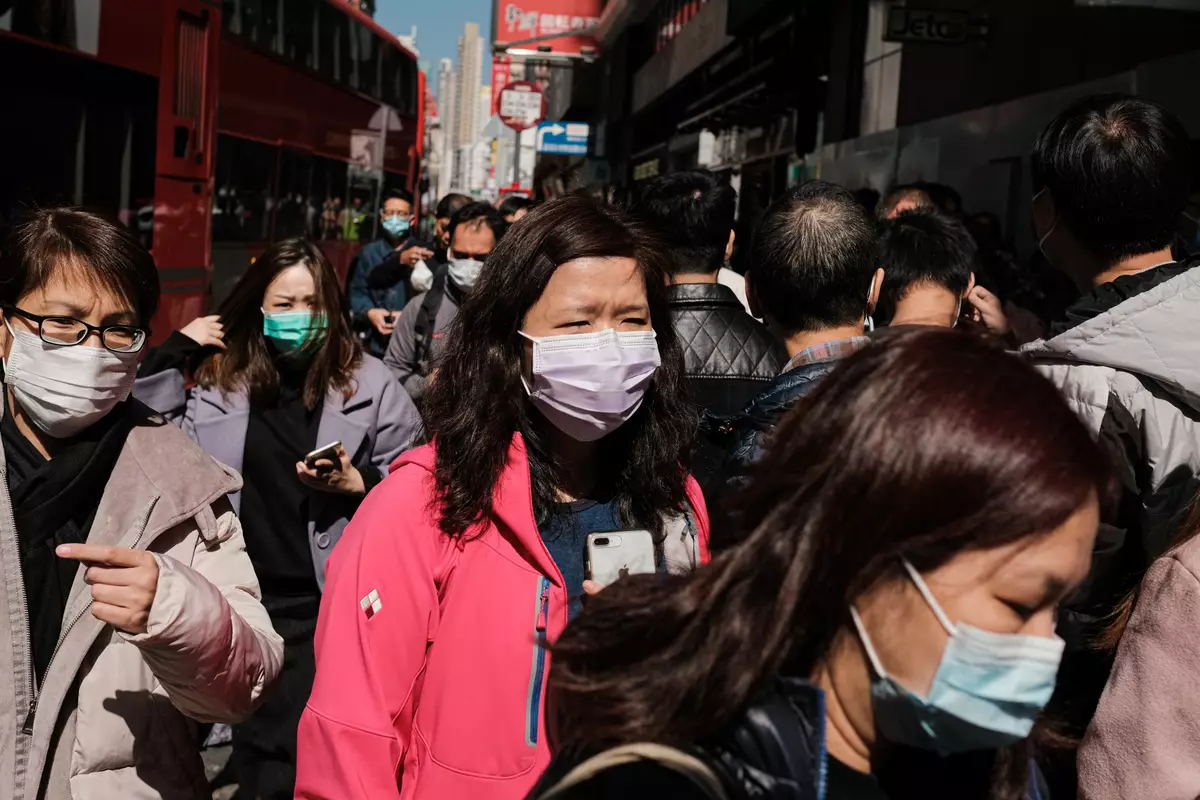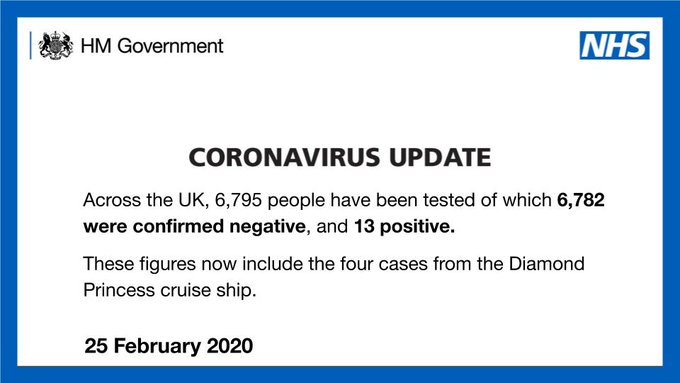
More than 300 workers have been sent home from their offices at London's Canary Wharf, it has emerged.
US oil company Chevron sent staff home on Tuesday, after an employee was sent for coronavirus testing following a trip to one of the countries affected by the deadly virus.
The company said: "Chevron continues to monitor the situation very closely, utilising the guidance of international and local health authorities.
Advert
"Our primary concern is the health and safety of our employees and we are taking precautionary measures to reduce their risk of exposure."
More than 120,000 people work in Canary Wharf which is also home to five shopping malls.
As of Wednesday, the official number of patients in the UK stood at 13, including four people who arrived in the UK from the Diamond Princess cruise ship in Japan, according to Chief Medical Officer Professor Chris Whitty.
Advert
Eighteen schools have been forced to either close or send pupils home over fears of a coronavirus spread.
The first cases of coronavirus (also known as (COVID-19) in the UK were declared earlier this month as the global death toll continues to climb, with 81,229 cases and 2,769 deaths worldwide at the time of writing.
The Department of Health and Social Care (DHSC) has raised the risk to the public from low to moderate, in line with the World Health Organization's announcement that the disease is now a "public health emergency of international concern".
The DHSC is advising anyone who has travelled to the UK from certain Asian countries in the last 14 days and experiencing cough, fever or shortness of breath to stay indoors and call the NHS non-emergency number (111).
Advert
These include mainland China, Thailand, Japan, Republic of Korea, Hong Kong, Taiwan, Singapore, Malaysia or Macau.

Speaking about the virus earlier this month, Mr Whitty said: "The NHS is extremely well-prepared and used to managing infections and we are already working rapidly to identify any contacts the patients had, to prevent further spread.
"We have been preparing for UK cases of novel coronavirus and we have robust infection control measures in place to respond immediately. We are continuing to work closely with the World Health Organization and the international community as the outbreak in China develops to ensure we are ready for all eventualities."
Advert
Earlier this month, a leaked letter seen by The Independent revealed how NHS hospitals in England have been ordered to create specialist areas for coronavirus testing to "avoid a surge in emergency departments".
The news comes just days after the WHO declared the situation a global health emergency.
"The main reason for this declaration is not because of what is happening in China, but because of what is happening in other countries," WHO's director-general Tedros Adhanom Ghebreyesus confirmed.
Advert
"Our greatest concern is the potential for the virus to spread to countries with weaker health systems, and which are ill-prepared to deal with it."
The virus spread to humans from animals (believed to be bats and snakes) sold at the Huanan seafood market in Wuhan City, China, according to studies.

Coronaviruses are a family of airborne viruses and spread in the same way the common cold is passed from person to person.
This particular strain of coronavirus is known to attack the respiratory system, causing pneumonia-like lung lesions.
It is incredibly contagious and can be passed on via cough and sneeze droplets in the air as well as on surfaces.
Symptoms include a runny nose, fever, headache, cough or other respiratory problems, shortness of breath, aches and body chills. It is possible to be 'a carrier' of the virus - meaning you are infected, but have no symptoms.

For more information, visit gov.uk/coronavirus
Featured Image Credit: PATopics: Life News, Coronavirus, Health
